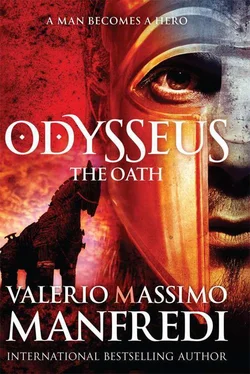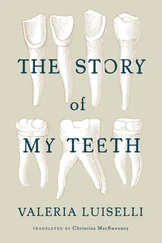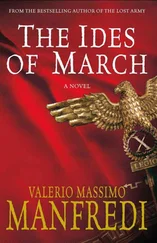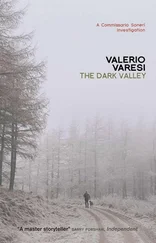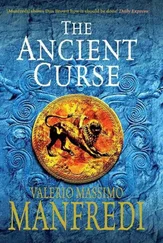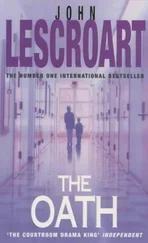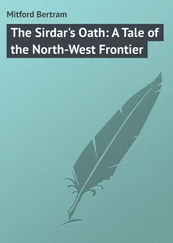Valerio Mafredi - The Oath
Здесь есть возможность читать онлайн «Valerio Mafredi - The Oath» весь текст электронной книги совершенно бесплатно (целиком полную версию без сокращений). В некоторых случаях можно слушать аудио, скачать через торрент в формате fb2 и присутствует краткое содержание. Год выпуска: 2013, ISBN: 2013, Издательство: Macmillan, Жанр: Исторические приключения, на английском языке. Описание произведения, (предисловие) а так же отзывы посетителей доступны на портале библиотеки ЛибКат.
- Название:The Oath
- Автор:
- Издательство:Macmillan
- Жанр:
- Год:2013
- ISBN:9780230769335
- Рейтинг книги:3 / 5. Голосов: 1
-
Избранное:Добавить в избранное
- Отзывы:
-
Ваша оценка:
- 60
- 1
- 2
- 3
- 4
- 5
The Oath: краткое содержание, описание и аннотация
Предлагаем к чтению аннотацию, описание, краткое содержание или предисловие (зависит от того, что написал сам автор книги «The Oath»). Если вы не нашли необходимую информацию о книге — напишите в комментариях, мы постараемся отыскать её.
The Oath — читать онлайн бесплатно полную книгу (весь текст) целиком
Ниже представлен текст книги, разбитый по страницам. Система сохранения места последней прочитанной страницы, позволяет с удобством читать онлайн бесплатно книгу «The Oath», без необходимости каждый раз заново искать на чём Вы остановились. Поставьте закладку, и сможете в любой момент перейти на страницу, на которой закончили чтение.
Интервал:
Закладка:
I spent the evening speaking with Antilochus, who sat next to me, and asked him whether he had ever journeyed away from the palace, by land or by sea.
‘By land,’ he told me, ‘I’ve been to Sparta and Argus. They are beautiful cities with great palaces but I like it better here because we have this bay full of fish where so many ships can moor. They come here from everywhere, you know: from Asia and the lands of the second sea, and from Crete, which is ruled by King Idomeneus, a friend of my father’s. One day I’ll go to Crete and even further than that. What about you?’
‘I went to the mainland to hunt boar with my grandfather, and I was wounded here, on my thigh, see?’
‘Your grandfather? Isn’t he that old plunderer and livestock thief?’
‘If you weren’t such a child,’ I replied, ‘I’d make you swallow that insult.’
Antilochus apologized: ‘I didn’t want to offend you. You are my guest and I must honour you. But if Autolykos has such a terrible reputation, it’s no fault of mine.’
‘My grandfather is not a plunderer, he’s a predator, and if he lives as he does he must have his reasons. I was very happy with him and I’m going back as soon as I can.’ Having done my duty in defending the family honour I tried to turn the conversation to less controversial subjects: ‘This is my second journey away from home and I’m proud to be visiting the house of wanax Nestor. Our fathers are bound by a great friendship and we must follow their example.’ My thinking was that Antilochus might well be king one day and that we should become allies. I had yet to learn that the future is ruled by fate.
WE SPENT three days in Pylos, then left for Sparta. The king gave us chariots and horses and we left our ships in his care, with part of the crew. I was amazed by the horses, animals of great mettle, accustomed to the battlefield, with twitchy tails and shiny coats. It was Antilochus who brought them to us, and I understood that this was an honour reserved for the most illustrious guests.
I mounted the chariot next to my father and held on to the rail. Mentor followed behind us with the commander of our ship. Three more chariots followed with six of our men, armed with spears, who would act as our escort. The final chariot had a lone driver, to allow room for the gifts we were taking to all the other kings. To reach Sparta we had to travel a very steep road that crossed a mountain range and then descended into the valley on the other side. At times the passage was very narrow and cut into the mountainside, so that the chariots were forced to proceed carefully, one at a time. When we got to the summit a marvellous sight met our eyes: a vast plain with thousands of olive trees, fruit orchards, meadows and pastures with flocks of sheep and herds of horses. I’d never seen anything so wondrous in my life; so many horses all at once!
‘This is the kingdom of Tyndareus,’ explained my father, ‘the lord of Sparta. His queen, Leda, is renowned for her beauty. They have four children, two boys and two girls. Even though Leda has given birth to twins twice, her body is as perfect as a goddess’s. And her daughters, young as they are, promise to outdo their mother! When we are in their presence, pay your respects to the queen first, and then to Tyndareus. I will do the same.’
It took us nearly a day to descend from the mountain, cross the plain and travel up another small hill opposite the first, where the city of Tyndareus and Leda stood. We reached the gates of Sparta at dusk and I realized that the day ended much sooner there than it did in Ithaca because of the huge mountain looming to its west, whereas in Ithaca I could watch the sun shine until it sank into the sea.
We were welcomed by the royal guard lined up on both sides of the road that led to the main gate. As we made our way, my father began speaking again: ‘Tyndareus reconquered his throne only seven years ago, after his half-brother had tried to banish him from his own city. He never would have succeeded in winning it back without the help of Hercules. His support in the battle was decisive but even his mere presence would have done the trick. Anyone who finds himself up against Hercules knows that he is doomed to defeat — fighting him would be like combat against the gods.’
‘Is that really true, father?’
‘It is indeed. No mortal can stand up to him. He’s like a boulder that rolls down the mountain and tears up pines and hoary olive trees on its way as if they were twigs. His battle cry is like the roar of a lion. I’ve never seen him wear armour: he fights half-naked and yet no one has ever succeeded in piercing his skin. .’
I didn’t ask my father anything else. But I thought that a man who has massacred his own family has crossed an extreme limit and entered into a territory impossible to return from; he can go nowhere except towards his own destruction. I understood my father’s admiration but I couldn’t understand how Hercules could still be considered a hero after having carried out such an atrocious crime. Or could the horrendous cruelty required for such a deed actually be a part of his nature? I surmised that men like my father, like Hercules, belonged not only to another generation but to another era: to a race of heroes that had the last drops of the blood of the gods in their veins. We would be different. We would only be men.
When we arrived at the palace, the footmen took care of our horses and we were taken to the baths, where we would be washed and scented and then change into fresh clothing before being admitted to the presence of the king and queen.
Leda had big, luminous eyes and long, wavy hair that fell to her shoulders and hung down her back. I felt my heart miss a beat in my chest. Her look was green and daunting, producing in me a dumbfounded amazement. Was that the gaze of Medusa, who turned anyone who looked upon her to stone? It was a song I heard when I looked at her, a complex song, with many voices combining to form a single melody. The evening breeze entered the palace, carrying upon it the scent of far-off lands, a hint of hay and violets and the distant hooting of the scops owl.
I was shaken from my rapture when my father elbowed me sharply in the side and we stood to pay homage to Tyndareus. The two princes, the youngest of the Argonauts, were shown in; they were about twenty-five years of age and named Castor and Pollux. They were twins and so identical that nothing but the colour of their eyes set them apart: Castor’s were more like his mother’s, Pollux’s more like his father’s. They had earned the fame of being unbeatable athletes, and you could see it in their build. Ignoring protocol, they ran to my father and embraced him, and he hugged them back tightly, overcome by emotion. It made me realize how striving together in a common endeavour created a bond that could never be broken.
The king had us sit at his table for the banquet and I looked around to admire the room. Here, like in Pylos, shining weapons hung from the walls — huge oxhide shields, bronze-tipped spears. Parts of the walls were painted with scenes of hunting and combat. One of them represented Hercules in the act of attacking the usurper who had seized Sparta from Tyndareus. It was amazing how every act Hercules performed became legend, even before the echoes of its telling had died away. My father observed the paintings as well with a look of wonder.
‘Atta,’ I whispered, ‘does he look like that?’
‘No. No artist can depict a hero for what he is, he wouldn’t be capable of it. He paints the things that are recognizable about him.’
‘Like the club. . his bulging muscles. Will I ever get to meet him?’
‘I don’t think so. His road has taken him far, far away from our world, to a place from which no one has ever returned.’
Читать дальшеИнтервал:
Закладка:
Похожие книги на «The Oath»
Представляем Вашему вниманию похожие книги на «The Oath» списком для выбора. Мы отобрали схожую по названию и смыслу литературу в надежде предоставить читателям больше вариантов отыскать новые, интересные, ещё непрочитанные произведения.
Обсуждение, отзывы о книге «The Oath» и просто собственные мнения читателей. Оставьте ваши комментарии, напишите, что Вы думаете о произведении, его смысле или главных героях. Укажите что конкретно понравилось, а что нет, и почему Вы так считаете.
